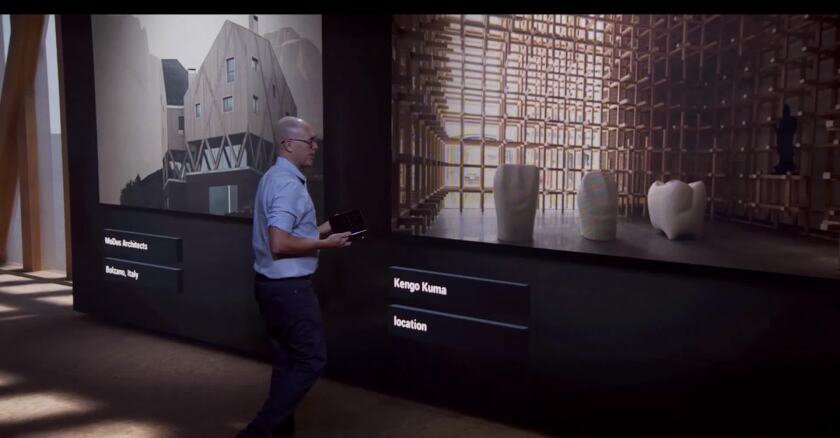According to a news release, the courses will be part of the center’s upcoming Michigan Online Future of Work Academy, where learners will “develop skills critical to the future of work and society” in virtual, augmented and mixed-reality environments.
“Learners and learning organizations must be agile and acquire new knowledge and skills to understand, shape and prepare for the future of work,” James DeVaney, the center’s founding executive director, said in the announcement.
Lauren Atkins Budde, the university’s director of open learning initiatives, said the courses will feature interactive 360-degree video content and mobile phone AR/VR simulations that can be accessed without a VR headset. She said courses will be geared toward future-of-work skill development in data literacy and ethics, emerging tech, leadership and self-management, among other subjects.
The first set of courses set to launch next year on Coursera’s online learning platform will include: “Feedback Loops: How to Give and Get Better Feedback,” taught by Patrick Barry, program director of writing and academic support and a clinical assistant professor of law; “People, Technology & Future of Mobility,” led by Liz Gerber, professor of public policy and political science; and “Advancing Health Equity Through Continuing Education,” taught by Ebbin Dotson, assistant professor of health management and policy.
“The kind of XR technology — and how it’s used — will be unique to each course, and centered around the learner’s needs,” Budde said in an email to Government Technology. “One course will leverage 360[-degree] interactive videos to create practice opportunities for developing effective feedback loops. Another will be developing a set of augmented reality experiences to teach key nursing skills to support workforce growth in that profession after the impact of COVID. Other courses will be leveraging XR to explore the future of mobility and manufacturing in new ways.”
Coursera’s Chief Content Officer Betty Vandenbosch said courses will explore topics such as AR/VR in manufacturing, implicit bias, nursing skills and learning experience design, among others.
“With XR learning, students can practice hand surgery 100 times before practicing in a lab. It can also help develop human skills, such as giving feedback,” she said of XR’s potential applications. “In a future where higher education is blended, I believe XR courses will grow more ubiquitous, especially once learners see how much it can help them hone their skills.”
The creation of the academy comes as post-secondary and workforce development programs are increasingly making use of AR/VR tools to provide hands-on training activities to students. One notable example is in Arkansas, where workforce development officials recently announced their use of virtual reality tools to spread awareness about technical career fields in need of applicants.
According to the news release, the university has already made use of AR/VR technology in College of Architecture courses that explore design challenges in virtual environments, as well as its School of Nursing for augmented procedure training. The university also offers a graduate certificate in Extended Reality and an online course called “XR for Everybody” that familiarizes students with AR/VR technologies.
Budde said the launch of the academy acts as part of the university’s Extended Reality Initiative, which brings together faculty innovators, students and industry partners to see what XR technology has to offer the education sector.
“Now, we are blending those areas of expertise to leverage XR technology for immersive, enriching, transformative, flexible online experiences for learners,” she said in an email.
Jeremy Nelson, director of the Extended Reality Initiative, said the new XR courses represent “an exciting next step in the evolution of bringing XR to the world for teaching and learning.”
“Over the last two years, we have focused efforts on bringing XR to residential learners on the Ann Arbor campus, and now we bring immersive learning at scale,” he said in a public statement. “We will be pushing the boundaries in many areas and are excited to have a partner like Coursera to work with on shaping the future of learning and the future of work.”









